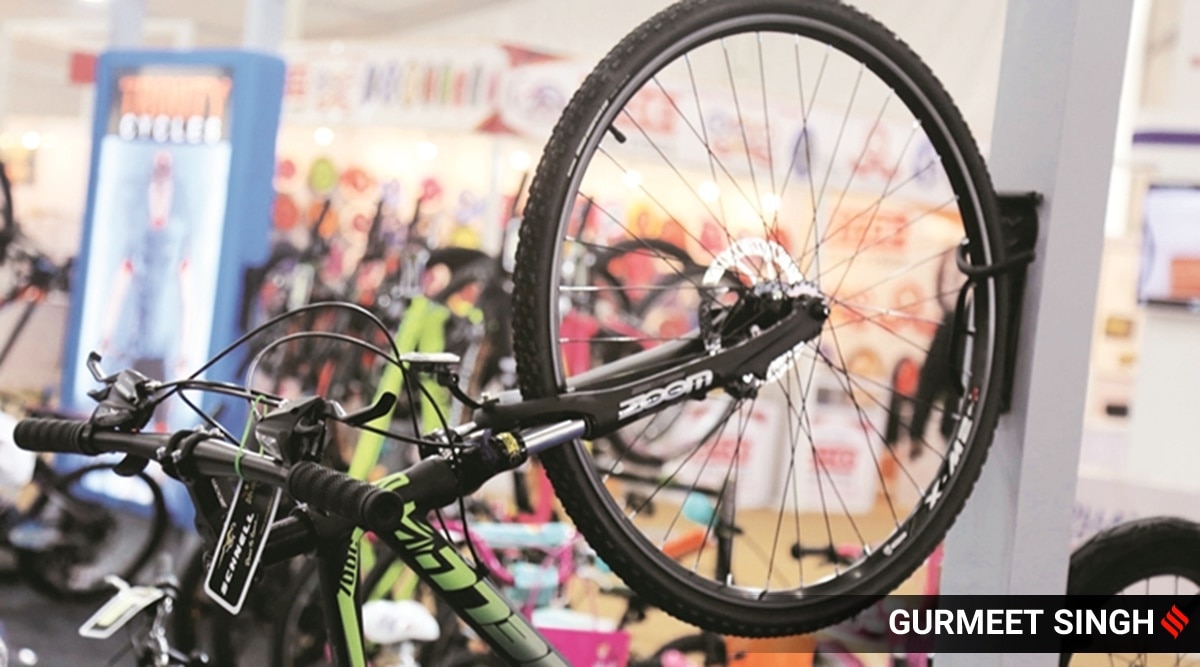From being environment and pocket-friendly to having numerous health benefits — here's why you must opt for e-bicycles
The pressing need to curb carbon emissions together with significant improvement in technology has put a global focus on e-mobility in recent years. As India aims to tread the model of smart and sustainable cities, e-mobility is poised to play an important role in achieving this goal, said Aditya Munjal, Director Hero Cycles and CEO, Hero Lectro.
E- cycles that add electric support to make traditional bicycles battery-powered are a crucial element of e-mobility. Not only do e-cycles bring in benefits for the environment and urban sustainability, but they also offer a slew of benefits for the riders — from being health-friendly to offering an unparalleled fun riding experience. Not to forget their pocket-friendliness at a time of skyrocketing fuel prices!
If you are looking to switch to e-mobility starting this World Bicycle Day, observed annually on June 3, here are some of the benefits you should know about:
Easy on the pocket
Persistently rising fuel prices have been a major pain area for commuters who ride fossil fuel-run vehicles. With the fuel prices being hiked, many consumers are actively looking for alternative transport options to reduce their fuel bills even as they want to avoid public transport in the midst of a raging pandemic.
Powered by batteries, e-cycles come with a running cost of a mere 7paise/km, and offer a highly viable low-cost alternative to ICE engine vehicles.
Good for the environment
For people who are inclined towards eco-conscious living, riding an e-cycle can well become the best and hassle-free way to commute for short and medium distances such as nearby markets or neighbourhoods. If a major chunk of urban dwellers switches from cars/bikes/scooters to e-cycles for short and medium-distance trips, it can have a remarkable effect on the environment.
Injecting fun into fitness
As a moderately intense cardio exercise, riding an e-cycle can combine fun and fitness. Research suggests that a rider weighing 70 kgs may burn between 280 and 390 calories in an hour riding an e-cycle, depending on the motor setting. In times of COVID-19, when gyms are out of bounds and social distancing is vital, cycling allows for safe physical exercise. The fun the entire cycling experience brings is the cherry on the cake.
The availability of an entire spectrum of pedalling modes — from motor-driven to manual pedalling to hybrid — an e-cycle also allows you to select your exercise intensity. Turning on the electric motor can allow you to ride back without breaking into a sweat for a sweet 25kms at a max speed of 25km/h on one single charge.
An antidote to traffic congestion
Come to think of it, what is the main cause of traffic congestion on urban roads? It is the presence of a high number of personal cars. Now imagine a scenario where half of these cars are replaced by e-cycles and space opens up on the roads! While e-cars are eco-friendly, they do little to ease traffic congestion, a major bane of urban living. This is why e-cycles make more sense than e-cars for building sustainable cities.
No need for license
Akin to a good old bicycle, riding an e-bike with ease will depend on how quickly one can learn to achieve the right balance. With no requirement of a license, e-cycles can be popular across age groups.
E-cycles in the Indian scenario
Motorised two-wheelers continue to dominate the Indian roads. According to Delhi’s Economic Survey 2018-19, out of 109.86 lakh motor vehicles on Delhi roads in 2018, more than 70 lakh were two-wheelers, including motorcycles and scooters. The penetration of e-cycles currently remains limited to the urban elite who cycles for recreation and fitness. However, e-cycles have the potential to become an aspirational alternative to motorised two-wheelers, said Munjal. According to market research, India’s e-bike market was valued at USD 1.02 million in 2020 and projected to grow to USD 2.08 million by 2026 at a CAGR of 12.69 per cent.
As a young and emerging economy, India is a rapidly mobile market for the e-cycle segment. The coronavirus pandemic and resultant lockdowns have piqued people’s interest in e-cycles as an alternative to public transports and outdoor fitness routines. An e-cycle in India starts at around Rs 20,000 and can go up to Rs 3 lakh. “The government must acknowledge the potential of e-cycles and frame policies to address the challenges of the e-mobility segment in a holistic manner. Simple measures such as dedicated biking lanes can go a long way to make an e-biker feel safe and push its uptake north,” said Munjal.
For more lifestyle news, follow us: Twitter: lifestyle_ie | Facebook: IE Lifestyle | Instagram: ie_lifestyle
Source: Read Full Article


